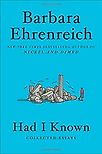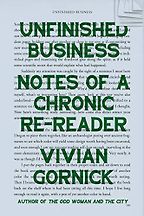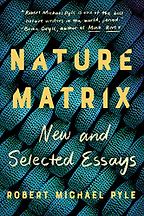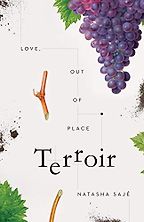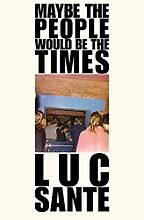We’re talking about the books shortlisted for the 2021 PEN/Diamonstein-Spielvogel Award for the Art of the Essay. As an essayist yourself, or as a reader of essays, what are you looking for? What’s the key to a good essay?
I have very specific and, in some ways, old fashioned views on the essay—though I think that the books we chose tend to confirm the ‘relevance’, perhaps even the continuing urgency, of those views. I think that we always ought to distinguish the essay from a political editorial or polemic on the one hand, and from a straight memoir or confession on the other. The essay, for me, is always a form in which it’s significant—more than significant, it’s decisive—that it has some form of first-person address, a particular voice bearing witness at a particular time. An essay isn’t a common claim, it’s not an editorial ‘we’, it’s not a manifesto. It’s one writer, one voice, addressing readers as though face-to-face. At the same time, for me—and I think this sense was shared by the other judges, as an intuition about the essay—it isn’t simply What Happened to Me. It’s not an autobiographical memoir, or a piece taken from an autobiographical memoir, wonderful though those can be (I say, as one who writes those, too).
It’s a personal address that points to a larger theme. You’ve got to recognize the person on the page, as we do with Charles Lamb, Virginia Woolf, Max Beerbohm, Clive James and countless others. But we also want it to have a certain critical conscience, we want it to be more than an outpouring of emotion. I don’t think of Anaïs Nin, for instance, as an essayist in that sense. She’s a wonderful confessional writer, a wonderful memoirist and diarist—but we don’t think of Anaïs Nin as an essayist in quite the same way that we think of Virginia Woolf or Joan Didion as an essayist.
Let’s turn to the books that made the shortlist of the 2021 PEN Award for the Art of the Essay. The winning book was Had I Known: Collected Essays by Barbara Ehrenreich, whose books have been recommended a number of times on Five Books. Tell me more.
One of the criteria for this particular prize is that it should be not just for a single book, but for a body of work. One of the things we wanted to honour about Barbara Ehrenreich is that she has produced a remarkable body of work. Although it’s offered in a more specifically political register than some essayists, or that a great many past prize winners have practised, the quiddity of her work is that it remains rooted in personal experience, in the act of bearing witness. She has a passionate political point to make, certainly, a series of them, many seeming all the more relevant now than when she began writing. Nonetheless, her writing still always depends on the intimacy of first-hand knowledge, what people in post-incarceration work call ‘lived experience’ (a term with a distinguished philosophical history). Her book Nickel and Dimed is the classic example of that. She never writes from a distance about working-class life in America. She bears witness to the nature and real texture of working-class life in America.
“One point of giving awards…is to keep passing the small torches of literary tradition”
We wanted to honor this lifelong commitment to serving the cause of reform: egalitarian measures, rights for working people and, above all, that great American tradition of listening to those who don’t get listened to, hearing and seeing people who don’t often get to speak or be seen—a tradition that extends back to Lewis Hine, Upton Sinclair and countless others. She seems to have both embodied that tradition and renewed it. What makes her work exceptional is that it comes to us both as a personal witness of a very moving kind, and as part of a broader political project of an admirably consistent sort.
Next up of the books on the 2021 PEN essay prize shortlist is Unfinished Business: Notes of a Chronic Re-Reader by Vivian Gornick.
Vivian Gornick is a writer who’s been around for a very long time. Although longevity is not in itself a criterion for excellence—or for this prize, or in the writing life generally—persistence and perseverance are. Writers who keep coming back at us, again and again, with a consistent vision, are surely to be saluted. For her admirers, her appetite to re-read things already read is one of the most attractive parts of her oeuvre, if I can call it that; her appetite not just to read but to read deeply and personally. One of the things that people who love her work love about it is that her readings are never academic, or touched by scholarly hobbyhorsing. They’re readings that involve the fullness of her experience, then applied to literature. Although she reads as a critic, she reads as an essayist reads, rather than as a reviewer reads. And I think that was one of the things that was there to honour in her body of work, as well.
Is she a novelist or journalist, as well?
She wrote a well-known book on what she called ‘The Romance of American Communism’, about the personal entanglements of American leftists during the long Stalinist nightmare, and she’s written novels, but I think that the core of her activity has been exactly this kind of extended critical essay, the classic form of the essay, where a personal exploration of experience is married to and meets an equally classic form of critical reading. And that’s a very rich American tradition. Hers is obviously a body of work that’s been highly influential on later generations of writers—not just on women writers, of course, but particularly on women writers. Her admirers find in her mix of deep reading and self-inspection, a template for engaged work, and they value, too, the acid and self-confident candour of her judgements.
Let’s move on to the next book which made the 2021 PEN essay shortlist. This is Nature Matrix: New and Selected Essays by Robert Michael Pyle.
I have a special reason for liking this book in particular, and that is that it corresponds to one of the richest and oldest of American genres, now often overlooked, and that’s the naturalist essay. You can track it back to Henry David Thoreau, if not to Ralph Waldo Emerson, this American engagement with nature, the wilderness, not from a narrowly scientific point of view, nor from a purely ecological or environmental point of view—though those things are part of it—but again, from the point of view of lived experience, of personal testimony.
It seems to me that that’s been one of the richest of American genres, and largely overlooked in recent years. Pyle is a writer who has spent his entire life, all of his writerly activity, writing that kind of easily neglected and overlooked essay—including a wonderful study of the migration patterns of monarch butterflies, that marked my first acquaintance with his mind. It’s not the kind of thing you’re going to find in New York Magazine or, for that matter, often in The New Yorker anymore, but is a vital part of a long, golden thread of American work. So honoring his work was a way both of honoring that tradition and the leading living American practitioner of that tradition. It was a way both of honoring the career of a remarkable but somewhat overlooked writer and also of reminding us that on the spectrum of the American essay, along with the political essays, it is just as important to pay attention to the non-political essay, the essay of natural life—which, of course, as with Thoreau so with Pyle, suggests a politics of its own.
Let’s look at the next book on the shortlist of the 2021 PEN Awards, which is Terroir: Love, Out of Place by Natasha Sajé. Why did these essays appeal?
One of the things that was appealing about this book is that’s it very much about, in every sense, the issues of the day: the idea of place, of where we are, how we are located on any map as individuals by ethnic identity, class, gender—all of those things. But rather than being carried forward in a narrowly argumentative way, again, in the classic manner of the essay, Sajé’s work is ruminative. It walks around these issues from the point of view of someone who’s an expatriate, someone who’s an émigré, someone who’s a world citizen, but who’s also concerned with the idea of ‘terroir’, the one place in the world where we belong. And I think the dialogue in her work between a kind of cosmopolitanism that she has along with her self-critical examination of the problem of localism and where we sit on the world, was inspiring to us.
Get the weekly Five Books newsletter
It’s a reminder—and I think this is generally true about the books in this sequence—that the special contribution the essayist makes to public debate is not to sharpen the arguments, nor necessarily to broaden the field of evidence as a social scientist might do, but to give us the intense particularism of individual witness on the issues that everyone is talking about. Nationality, race, ethnicity, gender, sexual orientation—she writes about them, not from a distance, but from an exquisite and micro-accented point of view.
Last of the books on the shortlist for the 2021 Pen essay award is Maybe the People Would Be the Times by Luc Sante.
Again, here’s a writer who’s had a distinguished generalised career, writing about lots of places and about lots of subjects. In the past, he’s made his special preoccupation what he calls ‘low life’, but I think more broadly can be called the marginalized or the repressed and abject. He’s also written acute introductions to the literature of ‘low life’, the works of Asbury and David Maurer, for instance.
But I think one of the things that was appealing about what he’s done is the sheer range of his enterprise. He writes about countless subjects. He can write about A-sides and B-sides of popular records—singles—then go on to write about Jacques Rivette’s cinema. He writes from a kind of private inspection of public experience. He has a lovely piece about tabloid headlines and their evolution. And I think that omnivorous range of enthusiasms and passions is a stirring reminder in a time of specialization and compartmentalization of the essayist’s freedom to roam. If Pyle is in the tradition of Thoreau, I suspect Luc Sante would be proud to be put in the tradition of Baudelaire—the flaneur who walks the streets, sees everything, broods on it all and writes about it well.
One point of giving awards, with all their built-in absurdity and inevitable injustice, is to keep alive, or at least to keep passing, the small torches of literary tradition. And just as much as we’re honoring the great tradition of the naturalist essay in the one case, I think we’re honoring the tradition of the Baudelairean flaneur in this one.
Five Books aims to keep its book recommendations and interviews up to date. If you are the interviewee and would like to update your choice of books (or even just what you say about them) please email us at [email protected]
Five Books interviews are expensive to produce. If you've enjoyed this interview, please support us by donating a small amount.

